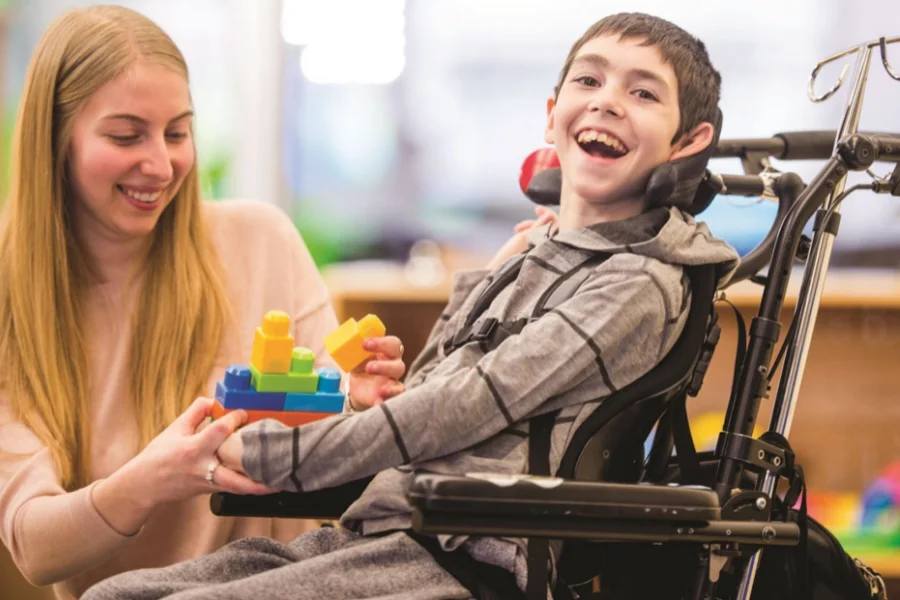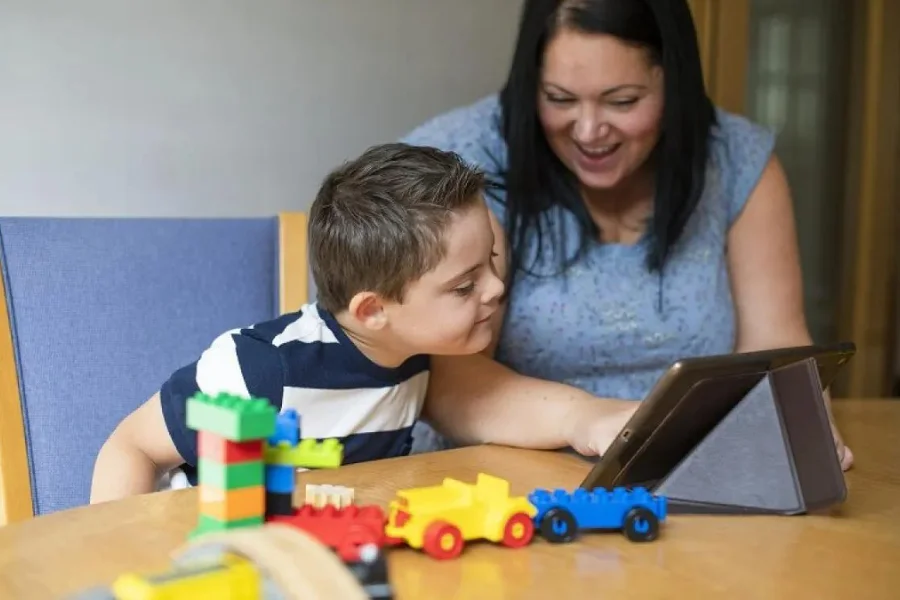
Source: forbes
Inclusive Education signifies an important step toward building classrooms that meet all students’ diverse needs, including those with disabilities. The scope of inclusive education is huge, as it aims to mix special education into the general education system, ensuring equal opportunities for every kid.
Unlike traditional models that often distinguish special and general education, inclusive education nurtures an atmosphere where all students study together, promoting collaboration and mutual respect. In India, addressing the unique learning needs of children with disabilities requires a unified method, making the scope of inclusive education important for creating equitable and effective learning spaces for all.
For more details on the SEN Course Call/Whatsapp at +919321024137 / +919869866277
To download the brochure of the SEN Course, Click Here!
What is Inclusion within Schools?
Inclusion within schools concentrates on creating an atmosphere where every learner, regardless of their abilities, background, or needs, feels respected and participates actively in learning. It refers to taking care of the individual learning needs of the child by focusing on their key strengths and enabling them to achieve their true potential.
It involves early detection of any learning disabilities that helps to implement remedial interventions at an early stage fostering the overall physical, emotional, and intellectual well-being of the child. Along with academics Inclusion also emphasizes the need to regulate the behavioral patterns of the child by helping the child navigate their emotions thereby helping them build meaningful relationships.
Inclusive Education endeavors to eradicate any kind of prejudices, and false myths that can harm the mindset of the child and create equal opportunities for receiving high-quality education for all in a mainstream classroom with minimal discomfort.
Here are key aspects of inclusion within schools:
Supportive Learning Environment
- An inclusive classroom is structured to cater to all learning needs, challenging gifted students and supporting those with learning differences.
- Teachers adopt responsive teaching methods, ensuring every kid can engage and contribute meaningfully.
Promotion of Diversity
- Schools teach respect for varied backgrounds and cultures, fostering tolerance and understanding among students.
- Celebrating diversity helps students appreciate different perspectives, making classrooms microcosms of a harmonious society.
Community and Belonging
- Inclusion thrives when students feel they are integral members of the school community. Open discussions about differences encourage acceptance and understanding.
- Building relationships among peers and teachers promotes a sense of unity and shared purpose.
Teacher’s Role
- Teachers play an important part in identifying their favouritisms and adopting inclusive strategies. Avoiding stereotypes, encouraging disputes, and valuing alternative perspectives are important steps.
- Personal rapport with students helps them feel supported and understood, paving the way for openness and mutual respect.
Inclusion is the most effective approach that is significant for the concept of Inclusive Education to yield the outcomes it aims to create. Inclusion aims to create a positive learning environment where every child is treated equally without being looked won upon and enable children to understand that their differences are their biggest strengths laying a strong groundwork for a socially receptive and tolerant community.
For more details on the SEN Course Call/Whatsapp at +919321024137 / +919869866277
To download the brochure of the SEN Course, Click Here!

Source: istockphoto
What is Classroom Inclusivity?
Building a learning environment in which every student, irrespective of their skills, experiences, or preferences for learning, is valued, respected, and actively participated in the teaching process is known as classroom inclusivity. This approach promotes participation, engagement, and achievement for every child by embracing the diversity of students and modifying conventional teaching techniques to meet their diverse needs.
Key Aspects of Classroom Inclusivity:
Respect for Diversity
- Identifies the differences in cultural, social, economic, physical, psychological, and academic backgrounds of students.
- Promotes equality and justice, ensuring that every child feels included and empowered.
Inclusive Teaching Practices
- Abandons strict mechanical memory exercises in favor of adaptable, student-centered teaching strategies.
- Encourages activities and tasks that cater to diverse learning styles, making lessons accessible and engaging for all.
Safe and Supportive Environment
Classroom inclusion fosters a spirit of understanding and empathy amongst children and society toward the hardships faced by children with special needs. This helps to eradicate any kind of bullying and fake myths about special children enabling them to thrive in a safe and organic environment.
Promotes higher participation
Inclusion involves several activities that are designed to help all children participate keeping in mind their learning styles and patterns. This helps children to feel confident to get involved in various activities promoting mass participation resulting in achieving the learning objectives of the Institution.
Importance in the Scope of Inclusive Education
The scope of inclusive education is huge, and classroom inclusivity is a critical component of achieving its goals. Inclusive Education creates a lot of awareness about the various struggles and the challenges faced by children with special needs thereby making quality education accessible easily to all children irrespective of their backgrounds.
Inclusion gives every child a fair chance to receive high-quality education thereby promoting equal opportunities for all to grow naturally and lead successful lives.
Inclusive Education has a larger role to play in creating a society that is emotionally receptive to the needs of all children thereby promoting unity in the society that in turn leads to a foundation for a developed nation.
Ultimately, classroom inclusivity contributes to making an education system that not only respects diversity but also transforms classrooms into spaces where every kid’s potential is recognized and fostered.
Unlock your potential to make a difference with Vidhyanidhi Education Society’s SEN Course!
For more details on the SEN Course Call/Whatsapp at +919321024137 / +919869866277
To download the brochure of the SEN Course, Click Here!
FAQs
What is the best Course for Autism Students?
The Certificate in Autism offered at Vidhyanidhi Education Society is the best, equipping professionals with skills to support and educate students with autism effectively.
What is an ASD Certificate?
An ASD Certificate is a professional qualification that allows educators to care for children with ASD supporting them in their holistic growth.
How to Become a Special Educator?
Enrol in specialized programs, like those offered by Vidhyanidhi Education Society, which provides crucial skills and certifications for a career in special education.



